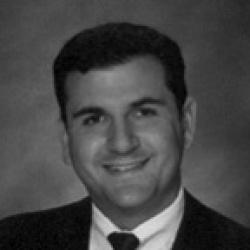Attention Headache Sufferers
Many people who suffer from headaches, neck pain, or shoulder pain believe they have to live with this pain for the rest of their lives. But the cause of these symptoms often can be corrected, allowing many to return to their active, healthy lifestyles again.
Countless Americans suffer from headaches, neck pain, or shoulder pain every year. Unfortunately, treatment for this pain often is to ignore it, as if it'll go away, or to take medication to deaden the area for temporary relief. The truth is that few know what causes their pain in the first place, so they never correct the problem. They just cover it up with medication or learn to live with it. They may not even realize their pain and symptoms can get worse as time goes by.
Your neck, the only connection your head has to the rest of your body, is comprised of seven highly mobile vertebrae that allow you to bend your head forward and backward, tilt it to either side, and rotate your head and neck from side to side. Because of its flexibility, the neck can be injured easily. This can cause many symptoms, including neck pain, migraine or tension headaches, shoulder pain, and even pain radiating down the arms to the hands. A neck injury such as a strain or whiplash can move vertebrae out of their proper position and cause them to irritate the sensitive spinal nerves. Injuries also can occur from a fall, poor posture, long-term stress, or even using your shoulder to hold the telephone receiver for extended periods of time.
Chiropractors have helped many people free themselves of pain by diagnosing and correcting the cause of headaches, neck pain, and shoulder pain. Safe, gentle chiropractic adjustments can restore range of motion and flexibility to the affected area while relieving pressure on the irritated nerves. Strengthening the muscles in the neck and patient education concerning proper care of the neck are equally important to help patients stay healthy.
Other symptoms that can indicate nerve interference are painful joints; numbness or tingling in the arms, hands, or other extremities; dizziness; and low back pain. If you experience these symptoms, contact your doctor of chiropractic. TPW
Countless Americans suffer from headaches, neck pain, or shoulder pain every year. Unfortunately, treatment for this pain often is to ignore it, as if it'll go away, or to take medication to deaden the area for temporary relief. The truth is that few know what causes their pain in the first place, so they never correct the problem. They just cover it up with medication or learn to live with it. They may not even realize their pain and symptoms can get worse as time goes by.
Your neck, the only connection your head has to the rest of your body, is comprised of seven highly mobile vertebrae that allow you to bend your head forward and backward, tilt it to either side, and rotate your head and neck from side to side. Because of its flexibility, the neck can be injured easily. This can cause many symptoms, including neck pain, migraine or tension headaches, shoulder pain, and even pain radiating down the arms to the hands. A neck injury such as a strain or whiplash can move vertebrae out of their proper position and cause them to irritate the sensitive spinal nerves. Injuries also can occur from a fall, poor posture, long-term stress, or even using your shoulder to hold the telephone receiver for extended periods of time.
Chiropractors have helped many people free themselves of pain by diagnosing and correcting the cause of headaches, neck pain, and shoulder pain. Safe, gentle chiropractic adjustments can restore range of motion and flexibility to the affected area while relieving pressure on the irritated nerves. Strengthening the muscles in the neck and patient education concerning proper care of the neck are equally important to help patients stay healthy.
Other symptoms that can indicate nerve interference are painful joints; numbness or tingling in the arms, hands, or other extremities; dizziness; and low back pain. If you experience these symptoms, contact your doctor of chiropractic. TPW

